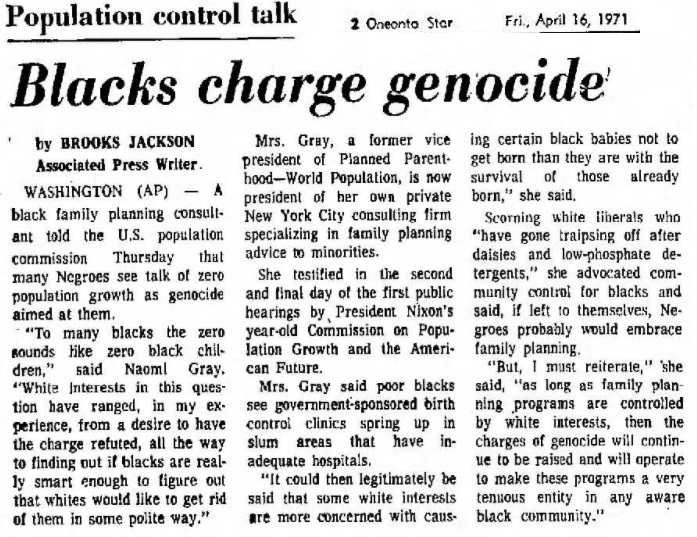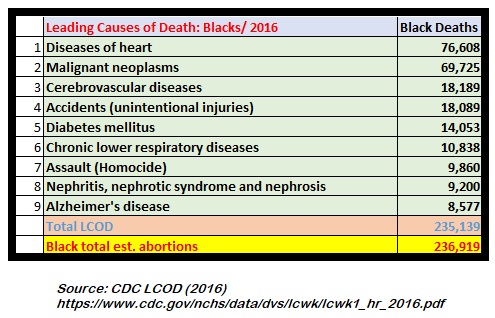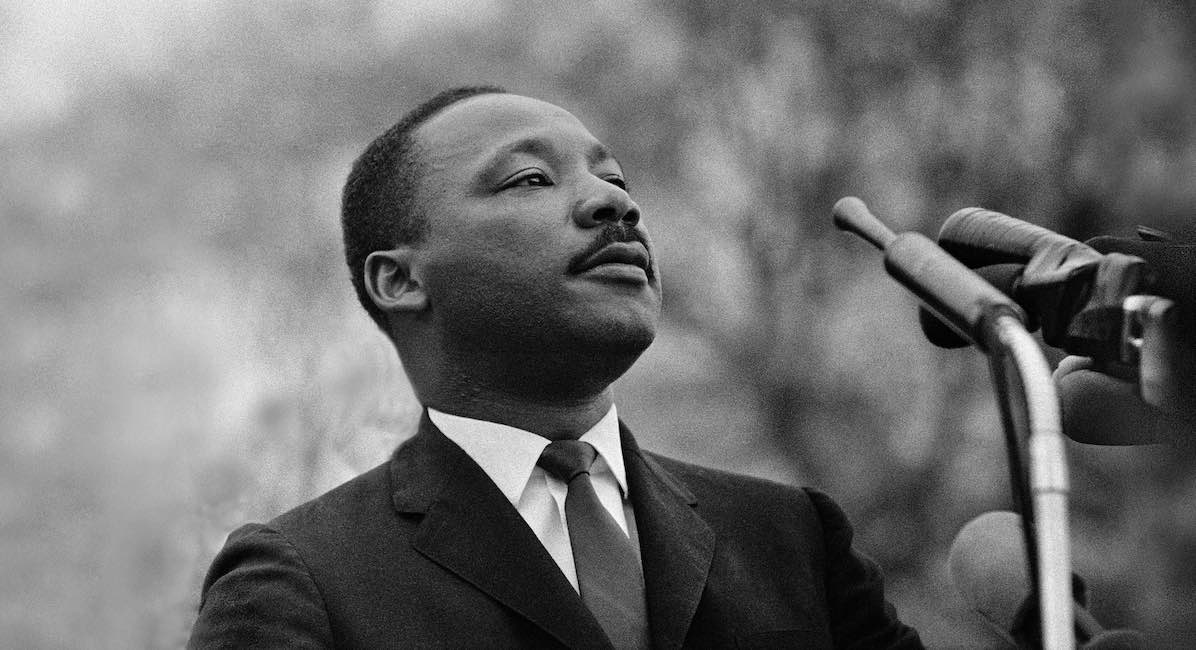Abortion on Black babies in the womb does not keep Dr. Martin Luther King’s dream alive. In August of 1963, approximately 250,000 people gathered in Washington, D.C., to listen to the civil rights leader’s iconic “I Have a Dream” speech. Tragically, today, approximately that same number of Black Americans are killed by legal abortion every year.
Live Action News previously noted that, in the most recent report (2016) from the Centers for Disease Control, Black women accounted for 38 percent of reported abortions, while population estimates for 2016 show that African Americans made up just 12 percent of the population. Depending on the source of statistics used, this means that an estimated 236,919 estimated (CDC/2016) to 259,336 (Guttmacher/2014) Black babies died from abortion in just one year. Guttmacher has not yet released data by race for 2017 yet. In addition, CDC data reveals that, in 2016, Black abortions (236,919 estimated) outnumbered the top nine leading causes of death (235,139) for Black Americans combined.
Multiply this by 47 years of legalized abortion, and it appears to be a terrible act of Black genocide.
Sadly, the tragedy did not begin with abortion. Live Action News has documented how Planned Parenthood founder Margaret Sanger and many of her board members were deeply entrenched in the racist philosophy of eugenics. Among those were Lothrop Stoddard, identified as Exalted Cyclops of the Massachusetts chapter of the Ku Klux Klan, as well as Planned Parenthood’s first physician president, Alan F. Guttmacher (after whom the Guttmacher Institute is named). Both men pushed population control methods that targeted Black Americans.
While Sanger (a member of the Eugenics Society who admitted to meeting with members of the Klan) was a vocal proponent of eugenic sterilization, Guttmacher (a former VP of the Eugenics Society) suggested voluntary methods like abortion would be a better tool. Despite the marketing hype, after their name change, Planned Parenthood itself was steeped in the eugenics community, taking free rent from eugenics organizations.
READ: Four Black Americans dedicated to making abortion a thing of the past
Planned Parenthood likes to claim that MLK supported their work because, in 1966, he was awarded Planned Parenthood’s infamous Margaret Sanger award. But a look at a timeline leading up to the decision reveals that Planned Parenthood may have had an ulterior motive for granting him the award. A 1966 internal memo from Alan Guttmacher and Fred Jaffe outlined the plan for winning over the Black community. The memo begins by calling the new plan a “Community Relations Program.” The “program” is to “form a liaison between Planned Parenthood and minority organizations” and will emphasize that “all people have the opportunity to make their own choices,” rather than, as the memo states, “exhortation telling them how many children they should have.”
Live Action News has documented the many voices of dissent within the Black community who viewed abortion and Planned Parenthood with suspicion; even strongly opposing taxpayer funding of abortion. While the Black community largely saw birth control and abortion as genocide, internal communications reveal that there was a plan in place to use Black citizens to introduce and promote abortion to their community. Some believe this to be an extension of Sanger’s infamous “Negro Project.” Planned Parenthood’s strategy worked. After dialoguing internally about the unease of the Black community, the suggestion was made to add Black members to Planned Parenthood’s board; and (not so) coincidentally, this took place at the same time Planned Parenthood was calling for the decriminalization of abortion.

In 1966, Dr. Alan F. Guttmacher, president of the Planned Parenthood Federation, mentioned the plan during a symposium at the University of California Medical Center:
The only way the mounting feeling that birth control is a tool of racism can be handled, is to involve knowledgeable leaders from the minority groups who understand and are favorable to the philosophy of birth control. They, in turn, must translate their appreciation of the contribution which birth control can make toward family stability to their own people.
That same year, Planned Parenthood gave its most infamous award, the Margaret Sanger Award, to Dr. Martin Luther King, Jr. It was accepted by his wife, Coretta Scott King, rather than by MLK himself. Then, just two short years later, according to a November 1968 New York Times article, Planned Parenthood went on record calling for abortion and elected its very first Black board chairman to roll out the new agenda: Dr. Jerome H. Holland. According to media reports, Holland “pledged his support for the group’s program saying that those who call birth control a form of genocide are ‘not aware of the real meaning of family planning and its uses.’”
READ: Martin Luther King, Jr.’s famous letter holds message of justice for the unborn
Planned Parenthood’s strategy was furthered under the corporation’s first female Black president, Faye Wattleton, who once admitted the group “received contributions from people who want to support us because they want all welfare mothers and all Black women to stop having children.”
There is no doubt that MLK would have rejected this kind of deliberate targeting of the very people his “I have a dream speech” was meant to lift up. Other notable Black leaders of the past — Fannie Lou Hamer, Dr. Mildred Jefferson, Dr. Dolores Bernadette Grier, Iowa Rep. June Franklin, Erma Clardy Craven, and even comedian Dick Gregory — tried to warn us that abortion would become a tool of Black genocide. Today, Black leaders and even former PP Board members are speaking out about PP’s eugenics agenda.
These Black leaders’ predictions seem ominous in light of today’s data, which reveals that tragically, in 2016:
- An estimated 649 abortions were committed per day on Black women.
- Black people made up just 12 percent of the U.S. population but accounted for 38 percent of reported abortions.
- The Black abortion rate (abortions per 1,000 women aged 15–44 years) was 3.8 times higher than white abortion rate (25.1 v. 6.6) and 2.15 times higher than the Hispanic abortion rate (25.1 v. 11.7).
- The Black abortion ratio (abortions per 1,000 live births) was nearly 3.7 times higher than the White abortion ratio (401 v. 109) and more than 2.5 times higher than Hispanic abortion ratio (401 v. 156).
- Black abortions (236,919 estimated) outnumbered the top nine leading causes of death (235,139) for Black Americans combined.
- Estimated Black abortion numbers were 24 times greater than homicides committed on Black Americans (236,919 v. 9,860) that same year.

Black leading causes of death v abortions 2016
In one year, abortion snuffs out between 230,000 to 260,000 Black lives. Surely this is not a fulfillment of the dream of the Rev. Dr. Martin Luther King, Jr.
Editor’s Note: An earlier version of this article was previously published by Live Action News.
“Like” Live Action News on Facebook for more pro-life news and commentary!







